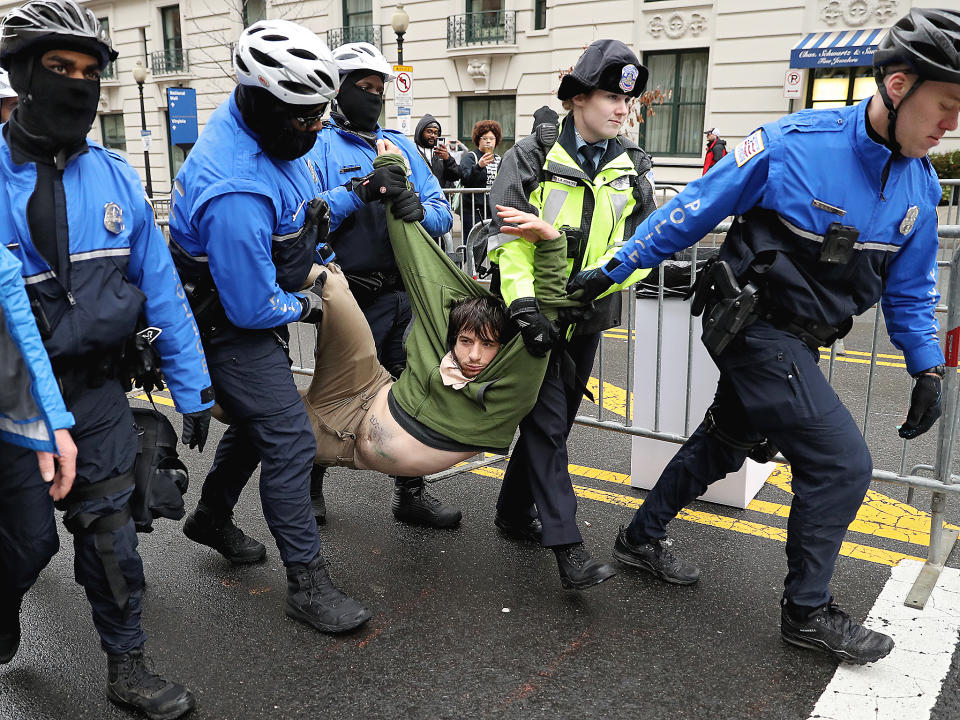Anti-Trump protesters charged with ‘felony rioting’ face 10-year jail sentences

Most of the 230 protesters arrested during Donald Trump’s inauguration on Friday will face charges of felony rioting, a crime which carries a maximum sentence of a decade in prison in Washington DC.
The 217 alleged rioters – who could also be hit with $250,000 (£200,000) fines – appeared before Washington’s Superior Court throughout Sunday.
The arrests were made around the time Donald Trump was being sworn in as president, as police used tear gas, stun grenades, water cannon and pepper spray on demonstrators.
DC police directly pepper spray elderly woman, disabled man. #J20 pic.twitter.com/UilWv2FYHb
— Wilson Dizard (@willdizard) January 20, 2017
Many of the protesters were dressed in anti-fascist ‘black bloc’ garb, including hoods and masks. They smashed windows, broke up bricks from the road to throw at police and vandalised a limousine parked in a downtown street.
One organiser tweeted a crowd of 2,500 – the “overwhelming majority communists” – were at the unauthorised demonstration, which targeted Starbucks, McDonald’s and Bank of America. Six police officers were lightly injured as riot police and green military people-carriers arrived on K Street, affluent home of Washington’s political lobbying industry, to secure the area.
The protesters, many of whom came to Washington in association with the umbrella protest group DisruptJ20, were kettled by riot police before a number were arrested. Under Washington DC law, felony rioting requires five or more people to cause “serious bodily harm” or more than $5,000 of damage to property, “by tumultuous and violent conduct and the threat thereof."
Police shoot projectile at protester, he screams in agony. #J20 pic.twitter.com/3gs0DoiiMz
— Wilson Dizard (@willdizard) January 21, 2017
At least one defendant told the judge they were a journalist for the online news site Vocativ.com, and should not have been arrested, according to a Buzzfeed report from the courtroom.
Some lawyers argued the Department of Justice, which President Trump has ultimate command over, should not be suing people who participated in anti-Trump protests, while others noted the prosecutors had not demonstrated their clients’ personal involvement in the alleged riot.
These are questions that will be settled at trials throughout spring. The protesters have nearly all been released without bail, the US Attorney’s Office announced, but must not get arrested again in the District before trials in February and March.
As the defendants left the police station, they were greeted by a smaller crowd of supporters chanting “anti-capitalista”.

 Yahoo News
Yahoo News 